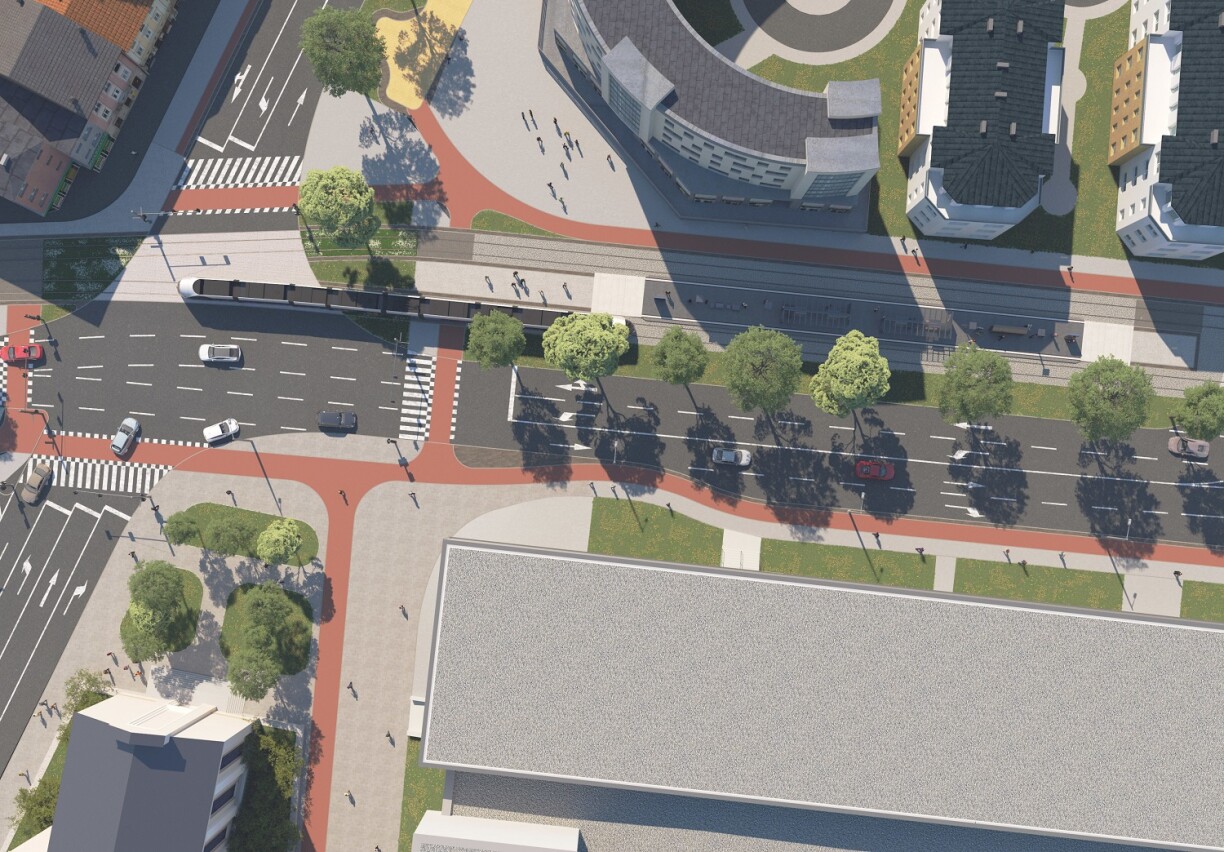
Bausch presented the project of the rapid tram and its “multimodal corridor” between Luxembourg City and the southern region in the presence of the town councillors of Esch-sur-Alzette, Leudelange, Luxembourg, Mondercange, Schifflange and Sanem.
“The development of our country requires an attractive and strong mobility offer between our two principal economic centres,” Bausch stressed.
The regions south and south-west of the capital are indeed on the rise. The number of commuters is expected to rise substantially in both directions.
The objective of the project is to bring these two economic centres closer together with a rapid tram every 7 minutes at peak hours and a travel time of 14 minutes between the Cloche d’Or neighbourhood in the City and the Alzette quarter in Esch-sur-Alzette. There will be 13 tram stations along the way, a total route of 17.5km, with 10km at speeds up to 100kph; 5 new interchange stations, a new animal crossing point and nearly 20 connecting road projects (motorway optimisations, adaptation of motorway junctions, noise reduction measures in adjacent localities).
“The new multimodal corridor and the rapid tram will not only relieve the chronic congestion of the A4, but will allow the municipalities of the southern region to organise their entire mobility within their communal territories”, the Minister explained.
François Bausch is confident that the draft financing legislation for the projects can be introduced by the end of 2022. The project should be completed in about ten years.
To finish, the Minister thanked the municipalities for their collaboration on the project. The elected officials and the minister agree that the rapid tram will be a great link between the strong economic centres in the southern region and the assets Luxembourg City has to offer, such as culture, education, research, the university, and the airport.